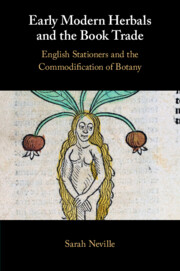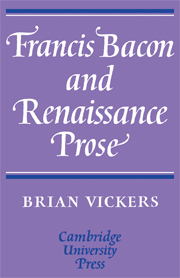Early Modern Herbals and the Book Trade
Between 1525 and 1640, a remarkable phenomenon occurred in the world of print: England saw the production of more than two dozen editions identified by their imprints or by contemporaries as 'herbals'. Sarah Neville explains how this genre grew from a series of tiny anonymous octavos to authoritative folio tomes with thousands of woodcuts, and how these curious works quickly became valuable commodities within a competitive print marketplace. Designed to serve readers across the social spectrum, these rich material artifacts represented both a profitable investment for publishers and an opportunity for authors to establish their credibility as botanists. Highlighting the shifting contingencies and regulations surrounding herbals and English printing during the sixteenth and early seventeenth century, the book argues that the construction of scientific authority in Renaissance England was inextricably tied up with the circumstances governing print. This title is also available as Open Access on Cambridge Core.
- Offers a valuable resource for students and scholars of book history, explaining how stationer behavior accounted for the emergence of early printed material through a detailed history of the patent system prior to and following the incorporation of the Stationers' Company in 1557
- Invites interdisciplinary engagement with book history, explaining early modern print culture to historians of science and helping book historians situate works of premodern science in the fluctuating circumstances that defined the first eight decades of English printing
- Shows that authorship itself generated commercial effects, extending Foucault's theory of the 'author-function' to offer a theoretical rationale capable of accommodating material texts alongside verbal and linguistic works and thereby making textual theory and bibliography legible to historians in other fields
- This book is also available as Open Access
Reviews & endorsements
'Sarah Neville's fascinating account of how stationers contributed to the creation of botanical texts brings English herbals and the early modern book trade together for the first time. Her reframing of their history irrevocably alters our sense of their importance for the publishers who commissioned them, the printers who manufactured them, and the booksellers who retailed herbals as well as for the Renaissance physicians, lay medical practitioners, and elite and common readers who so frequently consulted them. Early modern ecocritics will want to read this book along with book historians, historians of science, and those interested in Renaissance literature and culture.' Valerie Wayne, University of Hawai'i at Mānoa
'In Early Modern Herbals and the Book Trade, herbals come to life as dynamic objects taking meaning from their print environment. Focusing on the material form of the book provides Neville with a crucial and nuanced tool for unveiling the commercial landscape out of which attitudes toward natural history were indelibly shaped in the early modern era. Rather than relying on an author-centered approach, this book puts printers, booksellers, craftsmen, editors, licensors, translators, playwrights, and readers center stage in the production of botanical knowledge. What we learn is that herbals are much more than repositories of information that mark progress within traditional terms often used by historians of science.' Wendy Wall, Northwestern University
'Informative, penetrating, and witty, Early Modern Herbals and the Book Trade helps us see anew a genre of book we're familiar with largely through their sumptuous illustrations. Immersing us in the fascinating world of botanical publications at the front end of the Enlightenment, Neville has produced a study that anyone interested in the early modern era's engagement with the natural world will want to read.' Douglas Bruster, The University of Texas at Austin
'This is a unique text … Libraries with collections covering the history of the book and printing, the history of medicine, or Renaissance English literature would do well to add this volume to their shelves … Highly recommended.' R. C. Hedreen, Choice
'In this lively, informative book, literary scholar, bibliographer, and book historian Sarah Neville shows how publishers and readers shaped the market for printed herbals, and herbals as material texts, in sixteenth- and early seventeenth-century England. … Historians of science and medicine will profit from attending to Neville's critical bibliographic, publisher-focused approach to herbals.' Elizabeth Yale, Isis, a journal of the History of Science Society
Product details
August 2024Paperback
9781009013604
306 pages
229 × 152 × 17 mm
0.448kg
Available
Table of Contents
- Prologue. Milton's trees
- Introduction. Authorizing English botany
- Part I. A History of Herbals:
- 1. Authorship, book history, and the effects of artifacts
- 2. The stationers' company and constraints on English printing
- 3. Salubrious illustration and the economics of English herbals
- Part II. Anonymity in the Printed English Herbal:
- 4. Reframing competition: the curious case of the little Herball
- 5. The Grete Herball and evidence in the margins
- 6. 'Unpublished virtues of the earth': books of healing on the English renaissance stage
- Part III. Authors and the Printed English Herbal:
- 7. William Turner and the medical book trade
- 8. John Norton and the redemption of John Gerard.




